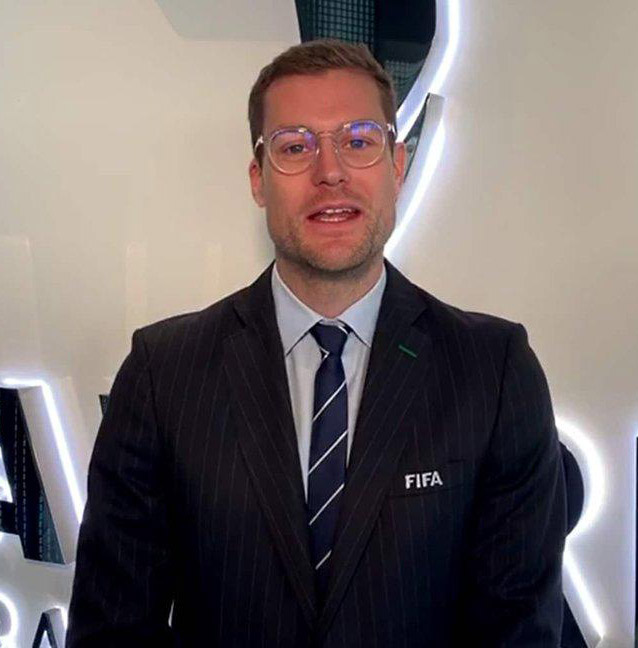The Guyana Football Federation (GFF) is set to sanction players and other officials under its jurisdiction for participating in the popular futsal and other such tournaments.
The GFF, in a release, stated that it has the blessings of its parent body the International Football Federation.
The International Federation of Association Football [FIFA] has confirmed that the GFF has the sole responsibility for organizing and supervising association football locally, said the GFF in the release.
The GFF stated that it wrote FIFA complaining that football games are organised and hosted at the National Gymnasium and elsewhere without the permission of the GFF.
“This trend, with its disregard for the GFF Tournament Schedule, GFF Constitution and FIFA’s regulations prompted the GFF to seek FIFA’s guidance and direction on the matter as the federation seeks to protect the product of football,” the release stated.
The GFF recently wrote the Minister of Social Cohesion, with responsibility for Youth, Sports and Culture, Dr. George Norton, indicating its concern that permission was granted for the utilizing of the National Gymnasium for the Rio Indoor Streetball Championships.
“Among the other recently unsanctioned tournaments were the 592 Beer Inter-Village Football Festival, the Dragon Stout Street-Ball Community Cup and the “Beat Dem Bad” competition. These unregulated tournaments also involve players of the GFF Elite League, whose clubs are members of the GFF, and FIFA was clear in its observations and recommendations,” the GFF release stated.
According to the GFF, it informed Dr Norton that the events were not sanctioned by the GFF and therefore the participation of its players and officials would not have been permitted.
The GFF sought the support of Dr. Norton in ensuring that only competitions sanctioned and regulated by the GFF are played at facilities controlled by the Government of Guyana.
They also pointed out the federation’s role in the regulation and sanctioning of football.
“The World Governing Body, in its letter sent by FIFA Head of Member Associations Governance Services, Mr. Luca Nicola stated that according to Art. 11 par. 1 of the FIFA Statutes, the GFF must be responsible for organising and supervising football in all of its forms in its country. Furthermore, Art. 72 par. 1 of the FIFA Statutes establishes that ‘Players and teams affiliated to member associations or provisional members or the confederations may not play matches or make sporting contact with players or teams that are not affiliated to member associations or provisional members of the confederations without the approval of FIFA’.
“In this context, we further take note that Art. 13 par. 1 let. c) and h) of the GFF Constitution specifically stipulates that the GFF members must “take part in competitions (if applicable) or other sporting activities organized/approved by the federation” and are not allowed “to maintain any relations of a sporting nature with entities (e.g. clubs, leagues) that are not members or affiliates” of the GFF. Finally, art. 13 par. 2 of the GFF Constitution provides for the possibility to sanction, as provided for in the Constitution, any member who violates any of the aforementioned obligations.”
The GFF reiterated that it was the only constitutional body recognised by FIFA, CONCACAF and CFU to control football in all of its form within the local jurisdiction in accordance with Article 1:1 of the GFF Statutes as well as Articles 13: c and 13: h of the GFF’s constitution.
According to the document, “The roles of the GFF in the regulation and sanctioning of football are: a. to ensure that the competition is played in accordance with the Laws of the game. b. To ensure that the competition is organised in a manner that places the highest priority on the safety and well-being of the players, officials and the general public. c. To ensure that “match fixing” does not occur. d. To ensure that individuals involved in the organisation of the competition are in good standing with the federation and have not been convicted of any crime. e. To reduce to potential of money laundering, illegal gambling and other illicit financial activities. f. To ensure that all conflicts arising from a competition are adjudicated through the GFF Constitutional processes. g. To protect the image of the football.”









